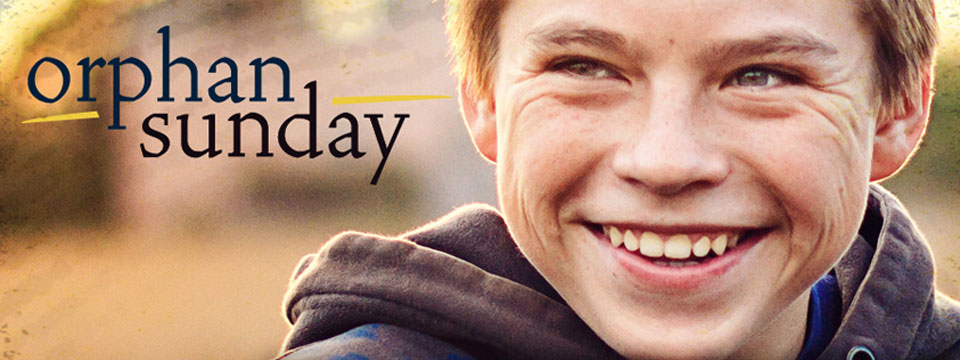Orphan Sunday is coming. What this means for the church I serve is that we are well on our way to making plans for celebrating what God is doing around the world, and in our own area, on behalf of orphans.
It is reported that there are approximately 153 million orphans in the world today. A portion of these vulnerable children live in our own country. If we look at the U.S. foster system alone, there are about 500,000 kids in custody. Of that number, there are more than 100,000 foster kids who have a permanency goal of adoption.
These children in the custody of the U.S. foster system are what we may term, “Legal Orphans.” Even if their time spent in the foster system is temporary, they typically have an enduring generational heritage of struggle and lack of adequate care that has been handed down to them by parents and even grandparents. It is not unusual to discover that a child in state’s custody is the biological son or daughter of a parent and even a grandparent who themselves were in the foster system at some point in their adolescence.
I return to where I began this article: Orphan Sunday is coming. For the past few years, many churches have made an effort to help God’s people understand the plight of orphans around the world and to discover the Father’s heart for the marginalized kids in our own context.
Since the Church is to be about the proclamation of the Gospel and the making of disciples is the Body of Christ veering off course by focusing on this social issue? Is there biblical precedent for the public promotion of social ministry such as adoption, fostering and orphan care? What about the Gospel? Does it get lost in the sea of social ministry activity?
This last question I will address first. Does the Gospel fade away or get lost when the Church focuses on social concerns? To this I will say that it is a very real possibility.
We cannot make the mistakes of some of the mainline denominations of the late 18th and early 19th centuries that replaced Gospel proclamation with social action. In essence, many folks redefined the Gospel and lost its message of a literal Christ on a bloody cross, an empty tomb and a triumphal resurrection. We must certainly be vigilant to NOT do that!
As a matter of fact, I believe that social ministry should actually flow from our fundamental belief in the Gospel. God sent His Son to spiritual orphaned and marginalized sinners. He calls us to realize our own rescue in Christ and reach out in an effort to rescue others. Does this not include a targeted effort to the physically orphaned and marginalized of the world?
But what about the first question posed: Is there biblical precedent for the public promotion of social ministry such as adoption, fostering and orphan care? Let’s let Scripture answer this one. I could begin by digging into the well-referred-to James 1:27 which would provide us a clear New Covenant reference to God’s expectation of those in Christ.
After all, the Holy Spirit there defines pure religion partly as that which takes into consideration the concerns and sufferings of the marginalized in society, namely, widows and orphans. But I will refrain digging into this passage at this time and instead focus on another taken from the Old Covenant writings. In particular, I am thinking of the following text: “Wash yourselves; make yourselves clean; remove the evil of your deeds from before my eyes; cease to do evil, learn to do good; seek justice, correct oppression; bring justice to the fatherless, plead the widow’s cause” (Isaiah 1:16–17, ESV).
Interestingly, the above passage addresses the same basic elements found in James 1:27 – holy living, care for the marginalized. But Isaiah’s call to bring justice to the fatherless is not some novel concept he conjures up to show the Israelites how to honor God; rather, it is a call to repent and return to covenant faithfulness. His message is an attempt to remind God’s people of what is required of them in the Mosaic Law (Ex. 22:22-24; Deut. 24:17).
Read through the major prophets of Isaiah, Jeremiah and Ezekiel, and you will discover that the Israelites had been exceedingly unfaithful to the commands of the Covenant – the Law of God. One theme you will see addressed time and again is this issue of refusing to provide justice for the marginalized (For a powerful example, read Isa. 58). God’s people are indicted and found guilty. God will bring them to judgment, and, one of the reasons He will do so is because they no longer care for the most powerless among them.
I am convinced that God has always intended that His covenant people care for the marginalized: The poor, the foreigner, the widow, and, yes, even the orphan. Perhaps one gets no closer to putting on display the mercies of Abba Father, as well as the compassion of Jesus Christ, then when they serve those with no voice and no power to change their sad situation. May God help us as His New Covenant people to do as Jesus did – move toward the suffering and seek to rescue them spiritually as well as changing their physical reality of suffering.
I’d love to hear from anyone wanting to discuss these matters or who may be looking for ways to make their local church move toward the orphan. Oh, and one more thing, if you know of someone from the Oklahoma City metro area who is trying to finance an adoption please get them in contact with me. There is a Karis Adoption Fund in place to offer financial assistance.
